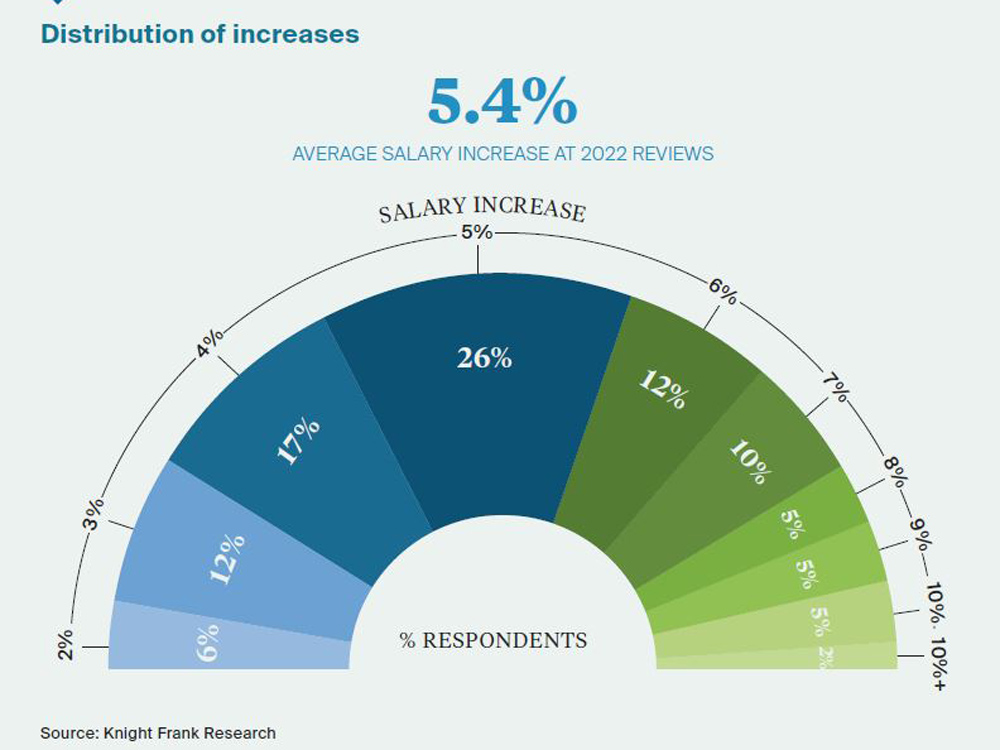CLA conference, Fully funded solar, Kenya goes GMO
The Knight Frank Rural Property and Business Update – Our weekly dose of news, views and insight from the world of farming, food and landownership
8 minutes to read
The Knight Frank Rural Property and Business Update – Our weekly dose of news, views and insight from the world of farming, food and landownership
It was instructive to attend the CLA’s annual Rural Business Conference, which Knight Frank sponsored, last week. Despite being billed as the headline speakers, new Defra Secretary of State Thérèse Coffey (making her first big public speech) and Lib Dem leader Ed Davey failed to make much of an impression on delegates aside, that is, from Dr Coffey’s quirky claim that it was now possible for potato farmers to grow three crops of spuds a year. In her summary, the CLA’s Victoria Vyvyan spicily noted: “It takes skill to take so long to say so little.” By contrast, it was the rural businesses who took to the stage to share details of their bruising planning battles or innovative schemes, such as providing superfast community broadband, that seemed to impress the audience. The message I took away was that those waiting for policymakers to deliver a prosperous future for the countryside would be better taking matters into their own hands.
Do get in touch if we can help you navigate through these interesting times
Andrew Shirley Head of Rural Research
In this week’s update:
• Commodity markets – Oil up, milk down in 2023?
• CLA conference – Conservatives lambasted
• Environmental payments – Details delayed
• Nutrient neutrality – New mitigation scheme details slammed
• Trees – Total value calculated
• Solar power – Fully funded rooftop installations available
• Staff salaries - New benchmark report released
• The Farmland market – Video and podcast update
• International news – Kenya relaxes GM rules
Commodity markets – Oil up, milk down in 2023?
Fuel prices are heading in the right direction with red diesel now significantly below £1/litre for the first time in a while. Demand for oil has been stymied by a slight bounce back in the value of the dollar, which had been trading down against a basket of global currencies. However, with China reducing its Covid-19 restrictions in the wake of mass protests demand could pick up again. The Opec+ group of oil-producing countries is also reported to be planning further cuts in output to bolster prices. Goldman Sachs predicts that Brent Crude, currently down at US$85/barrel, could bounce back to US$110/barrel next year. Meanwhile, the surge in milk production I mentioned recently could weigh on the market next year. Some commentators are now predicting that farmgate prices, which in some cases are over 50p/litre, could start to slide in the spring.

CLA conference – Conservatives lambasted

The Tory party has long been considered the political choice of rural landowners, but the government was given a stern wakeup call by CLA President Mark Tufnell at the organisation’s Rural Business Conference, sponsored by Knight Frank, last week. In an impassioned introduction to the event, he said patience was running out as 12 years of Conservative rule had not improved rural policymaking and in some cases had made it worse:
“There is nothing Conservative about holding rural businesses back. There is nothing Conservative about letting rural communities fail,” said Mr Tufnell. He was particularly scathing about the planning system and said it was unacceptable that six years after the vote to leave the EU, the government still hadn’t released the full details of its new environmental support schemes (see article below).
In response, new Defra Minister Thérèse Coffey offered a surprisingly underwhelming retort that did little to reassure those delegates that I spoke to. Speaking later, Liberal Democrat leader Ed Davey piled on with the criticism, but offered few policies of his own, other than a call for the appointment of a dedicated cross-departmental Minister for Rural Communities, “to make sure that rural voices are heard across Whitehall when decisions are made. So that rural communities aren’t forgotten or ignored by any part of government ever again.”
Knight Frank’s Head of Rural Consultancy James Farrell rounded the conference off with an optimistic rallying call, saying landowners were well placed to create sustainable, profitable businesses that delivered for nature and local communities by focusing on the five Ps – People, Planet, Prosperity, Purpose and Place.
Environmental payments – Details delayed
An announcement from Defra regarding the outcome of a review of its flagship Environmental Land Management Schemes (Elms) has been delayed until the New Year. Payment details had been expected imminently, but Defra minister Thérèse Coffey, speaking at the CLA’s Rural Business Conference on Wednesday, said farmers would have to wait until 2023 to find out more. Dr Coffey, however, did confirm speculation that Local Nature Recovery, the mid-section of the three-tier scheme, was likely to be replaced by a revised version of the current Countryside Stewardship Scheme that she called CS+. For more information on making the most of Countryside Stewardship and other grants please contact our resident expert Henry Clemons.
Nutrient neutrality – New mitigation scheme details slammed
The HBF has criticised the government’s long-awaited update on its nutrient mitigation scheme for lacking sufficient detail and claims last week’s announcement will fail to unlock the delayed construction of thousands of much-needed homes. Under the requirements of the scheme, developers wanting to gain planning permission to build houses in certain catchment-sensitive parts of England must offset any potentially harmful emissions of nitrates and phosphates contained in wastewater from their developments. They can do this using nature-based solutions of their own, or by buying catchment-specific credits provided by Natural England or other third parties. Natural England says it will shortly be approaching landowners who could potentially provide the land for the long-term mitigation projects needed to generate the required credits. Housebuilders, especially smaller businesses, are concerned, however, that the credits will not be available soon enough or in sufficient quantities.
Trees – Total value calculated
The UK’s non-woodland trees, such as those in hedgerows and towns, are worth a whopping £3.8 billion, according to a new paper from Forestry Research. The valuation is “based on the important role trees play in sequestering and storing carbon, regulating temperatures, strengthening flood resilience and reducing noise and air pollution. Together, these help to mitigate against climate change, reducing damage to infrastructure and people from the impact of flooding, cooling our cities in summer and improving health and wellbeing”. The report also estimates the natural capital value of non-woodland trees to be as much as £151 billion. This represents the value of the trees over the course of a century and provides a useful means of comparison to other natural assets.
Food chain – Farmers not receiving their share
Farmers have long lamented that they do not receive a fair slice of the retail price charged for food at supermarkets. A new report from food and farming NGO Sustain attempts to calculate just how small that slice of the pie really is. It analyses in detail the cost of producing five processed food products, such as a block of cheese or loaf of bread, and how the price is allocated back down the food chain. For a 350g four-pack of supermarket beefburgers sold for £3.50, the researchers calculated that a beef farmer has costs of 90p, yet receives just 0.1p in profit (0.03%), far less that the processor who has similar costs and yet gets ten times the profit (1p) and retailer 70 times (7p).
Solar power – Fully funded rooftop installations available
With energy costs spiralling, more rural landowners are looking to renewable solutions like roof-mounted solar to help reduce their bills. Installation costs can, however, be prohibitive, especially as borrowing costs have risen sharply. To help our clients Knight Frank has partnered with Zestec to offer a fully funded solution. To find out more, listen to David Goatman, our Head of Energy, who is taking part in a 30-minute webinar about the scheme on 8 December. For more renewables help please contact Robert Blake.
Staff salaries - New benchmark report released

The latest edition of the Knight Frank Estate Staff Salary Survey has just been published. The report reveals the average salaries paid for a wide range of rural estate and farming roles and level of wage increases being offered by rural businesses. Also highlighted are the key employment issues facing the rural economy. Download your copy here or get in touch with Chris Terrett for more details
The Farmland market – Video and podcast update
The farmland market has remained resilient while other asset classes like equities have fallen.
As mentioned previously, our Q3 Farmland Market update, which reveals a sharp annual increase in average farmland values, is out now. If reading research reports is not your thing, I’ve packed the key findings into a 60-second video that you may find interesting. You can also listen to my colleague Jessica Waddington and me discuss the farmland market with Knight Frank’s Global Head of Research Liam Bailey in an edition of our Intelligence Talks podcast.
International news – Kenya relaxes GM rules
Kenya has scrapped a 10-year ban on genetically modified crops to help offset the impact of a long-term drought on the East African country’s ability to feed itself. From next year, drought-resistant GMO maize will be planted over 0.5 million acres. As well as the effects of drought, rising temperatures are also encouraging new pests and diseases, Dr Eliud Kireger, Director General of the Kenya Agricultural and Livestock Research Organization, told the BBC. Despite this, over half of Kenyans are thought to be against the introduction of GMO crops.
Photo by Nuno Marques on Unsplash